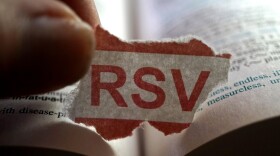The state’s Public Health Laboratory in Rocky Hill misdiagnosed 90 people as COVID-19-positive during the past month, a mishap that likely led healthy nursing home residents to be housed with infected patients, state health officials acknowledged Monday.
We depend on your support. Donate to Connecticut Public today.
The department initially could not say how many of these individuals, who were tested between June 15 and July 17, might have later contracted coronavirus or died from that illness after being exposed to infected patients.
Department of Public Health Commissioner Deirdre Gifford and the public health laboratory’s director, Dr. Jafar Razeq, also could not say whether the four private labs assisting the state with COVID-19 tests had similar problems with false positives. But they said the reason for the misdiagnosis lies with the test’s manufacturer, and not with the state lab.
“Accurate and timely testing for the novel coronavirus is one of the pillars supporting effective response to the COVID-19 pandemic,” Gifford said. “Thanks to the quick action of our team at the state lab, adjustments have already been made to ensure the accuracy of future test results from this platform.”
But Monday’s announcement raised several huge questions about the scope of the problem.
Nursing homes routinely house COVID-19-infected patients together in a separate wing for weeks until they recovered and tested negative. Later in the pandemic the state and the industry established six locations to house only elderly residents who had tested positive for the virus.
State health officials could not say if any of these 90 “false positives” later contracted the coronavirus, though they conceded some likely were placed in close proximity to others with the disease. Representatives of the state’s two major nursing home associations did not comment Monday afternoon.
All but one of those — 89 — were residents of nursing homes or assisting living communities, Gifford said., The other was in an acute care hospital when tested.
The state’s public health laboratory also isn’t the only one providing tests in Connecticut. The state is working with four private labs associated with Yale University, The Jackson Laboratory in Farmington, Genesys Diagnostics in Montville and Sema4 based in Stamford.
Connecticut health officials said they’re exploring but don’t know if these sites also had issues with false positive test results.
“I don’t want to jump to any conclusion about numbers,” Gifford said during a midafternoon news teleconference.” We are talking to partner labs in this state.”
Gifford said, “I’m sure that they will be looking into and reviewing the data from their laboratories.”
But she added that Connecticut has tested thousands of individuals and health officials believe the number of patients who received inaccurate test results is a very tiny fraction of the overall pool.
Connecticut’s problems center on a coronavirus test developed by Waltham, Mass.-based Thermo Fisher Scientific, Gifford and Razeq said.
The manufacturer also must provide specific procedures for performing the test. But after discovering inconsistencies with test results Wednesday and Thursday of last week, Connecticut health officials learned that Thermo Fisher had “changed and tweaked some of the steps in the procedure” unbeknownst to the state, Razeq said.
Thermo Fisher spokesman Ron O’Brien said the company has made “a number of amendments” to its original procedure since it was established on March 13, but they all are posted on the company’s website and readily available to public and private laboratories.
“The details on how they run are all spelled out on that website,” he said.
Connecticut has since reported the flaw to the U.S. Food and Drug Administration, as well as to the test manufacturer, and has notified representatives of all of the affected patients.




